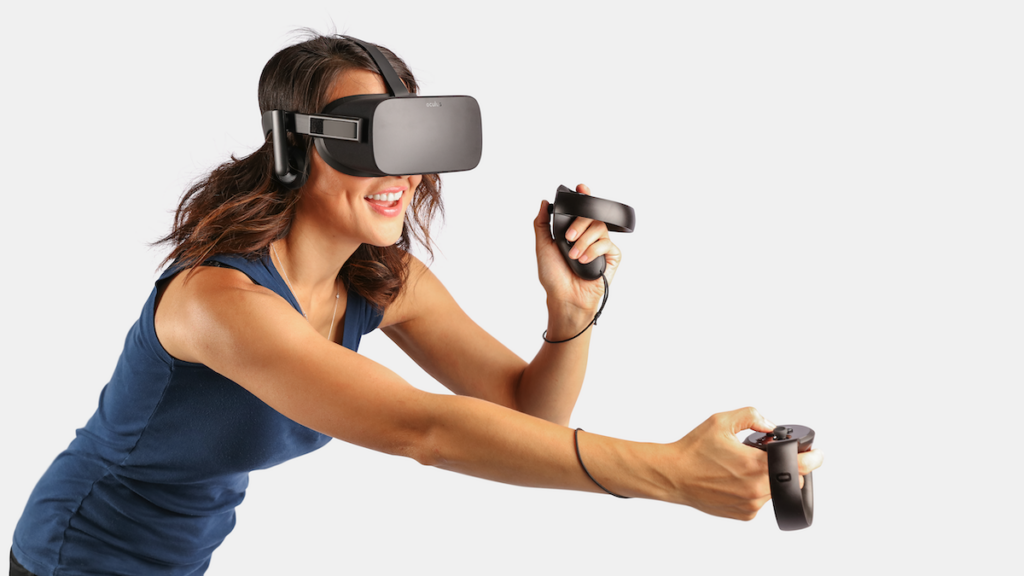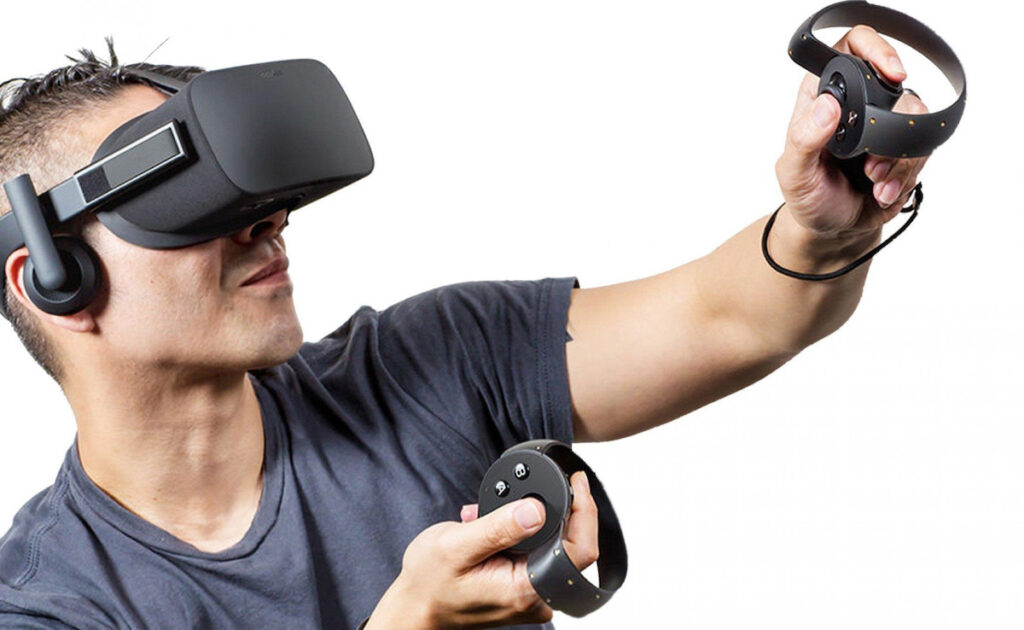
Virtual reality (VR) is a modern technology that allows users to interact with a virtual world that may or may not be similar to the actual one in real time. Anyone who has access to VR technology can virtually tour a virtual environment and engage with its inhabitants.
Virtual reality is being used by numerous businesses to increase user engagement, which is why it is becoming more and more popular every year. More crucially, as the cost of virtual reality equipment declines, a larger audience may now afford it.
The pros and cons of VR are the same as those of any other widely used technology. We will discuss the advantages and disadvantages of VR in this article to help you determine if you need it or not.
Advantages of Virtual Reality (VR)
The fact that VR is altering the way we work, unwind, and even study is one of the most intriguing aspects about it. A paradigm change is actually taking place, and it is beneficial in many ways. Let’s look at it.
1. More Than Real
In contrast, virtual reality provides much better visuals that give the user a sense of being in another world while playing games, viewing scenery, etc. When using the VR controller to play games, the user has the illusion that they are actually within the game, experiencing each movement as if it were real and experiencing a wide range of additional sensations.
2. Safe Practice / Simulation
The ability to conduct training and practice by replicating potentially dangerous real-world operations like surgery, combat, aviation, etc. would undoubtedly be the best practical benefit of this technology, among countless other incredible advantages.
This implies that a pilot can train flying a virtual aircraft for a long time before doing so in a real aircraft, or that firemen can put the abilities they’ve learned to use before needing to put out a real fire.
The learning curve between experienced personnel and new hires will be shortened by such an intensive experience, enabling them to assume their positions more quickly.
3. Connects With People
You can speak with someone you don’t know in real life through virtual reality. In comparison to real life, it makes it easier to establish new relationships. Users learned about various people and made connections with them.
4. Effective Communication
Virtual reality has several benefits, one of which is effective communication. Users can interact with one another and enjoy their conversations as a result. It offers a fresh way of interacting with people.
5. Conferencing
VR can bring all the participants together in a virtual setting so that you don’t have to get in your car every morning and drive to work merely to sit through a bunch of meetings.
The creation of live VR event coverage is now being worked on by VR software developers. Due to virtual reality, even if the participants are dispersed over vast distances, it will seem as though everyone is there in the same space.
6. Gaming and Motivation
Gamification provides opportunities in VR to further enhance motivation and learning outcomes.
Trainees may compete with one another in the VR environment by incorporating training simulations with game-like aspects, such as scoring, timed activities, and incentives. This will increase their interest in what they are learning.
7. Gives Detail Views
Virtual reality offers a complete and in-depth perspective of a location and makes visiting tourist attractions more enjoyable and simple. It provides a thorough overview of a location you desire to visit. Therefore, by seeing the actual locations of that place, viewers can organize their own journey. Additionally, visitors can view significant landmarks and significant locations that they are interested in visiting.
It can be exhausting to arrange a vacation, and if the destination doesn’t turn out as expected, it will inevitably make one feel worse. However, with the help of VR technology, one can easily acquire a clear, thorough view of any tourist attraction and decide whether the trip is worthwhile.
8. Convenient in Everyday Life
Virtual reality is incredibly useful for everyday tasks like shopping. Consider that you are looking for interior decor for your home. However, choosing a perfect fit is not made any easier by simply looking at the designs, thus a perplexing situation results.
Utilizing virtual reality to put together the plans and the interior of your home will make it simple to address this confusion and make an informed choice.
9. Real-Time Feedback and Analysis
The evaluation of the learning outcomes is a crucial component of training.
Since most VR systems have built-in tracking, it is possible to provide the students with extensive real-time feedback and guidance by precisely tracking their activities throughout the training experience.
More importantly, it is feasible to compare student behaviors and performance in a real-world setting with unparalleled accuracy and to save data for a later analysis or comparison.
10. Increased Learning Possibilities
With the use of VR technology, doctors can comprehend the new properties of any treatment and identify its adverse effects, providing them a clear notion of the conclusion. The use of VR in particular software configurations can make it easier to discover errors in fields like content creation and editing.
11. Awesome Experiences
People that use virtual reality report having amazing experiences. The virtual reality (VR) technology gives users the impression that they are experiencing real places, genuine sounds, and real sights. Many people feel that virtual reality technology should be used more frequently.
The disabled folks value it greatly. because they can explore the real world through virtual reality. The audiences of movies created for virtual reality have the option to view the entire scene’s surrounds. As a result, it gives viewers a participatory viewing experience.
Disadvantages of Virtual Reality (VR)
We have discussed the benefits of virtual reality so far, but there are also some disadvantages. Let’s look at it.
1. Unreal World
Using VR technology to some level, one may always train to either do surgery or fly a plane. However, training in the actual world and in the virtual world are two very different things. When placed in situations where their decisions may have real-world repercussions, they might not be able to perform at their best.
2. Expensive
Even though VR technology offers a fantastic and entertaining experience, not everyone can afford it because it is not inexpensive. Even if the cost of this technology has decreased over time, it is still too expensive for the majority of people to afford.
3. Intransigent
Virtual reality systems do not allow for adjustments to be made to the pre-determined program sequence. In the actual world, if someone is in a classroom and wants to ask a question or offer a proposal, they are free to do so. However, in the virtual world, this is not possible.
4. Isolated Living
People become addicted to the virtual world after spending a lot of time there and frequently prefer it over the real one. As a result, they spend more time playing games and interacting with their peers online. They gradually become cut off from the outside world as a result of this.
5. Getting Addicted
A person may develop an addiction to a virtual environment if they spend a lot of time there. With social networking, where you may make your own avatars and interact with other individuals online, this is very risky.
Additionally, there are many things you may do in the virtual world that are against the law in the real one, and there is never a guarantee that something from the virtual world won’t be acted out in reality because there is no reset button.
6. Loss of Human Connections
Here, a person prefers virtual reality to actual life when it comes to social connections. As a result, depending on the degree, this could lead to some incorrect associations that are not a part of the social context in real life and may eventually cause sadness and disassociation.
7. Health Effects
Long-term usage of virtual reality can cause nausea, loss of spatial awareness, and dizziness and disorientation. In the classic meaning, the cause of nausea, such as seasickness, is that we feel all the movements but cannot see them. This is why you’ll feel better after heading to the ship’s deck and gazing towards the horizon.
The situation is reversed in virtual reality. Like in a video game, you can watch every movement, but you cannot feel it. However, if you spend too much time in virtual reality, you might get nausea.
8. Feeling of Worthlessness
Virtual reality users frequently experience a sense of worthlessness. They believe they are escaping reality, and occasionally this belief proves to be extremely hazardous for them.
9. Technology is Still Experimental
Despite being employed in many different sectors, virtual reality technology is still in its infancy. It is not fully developed or accepted. The VR has a lot of drawbacks, making it only partially tolerable.
